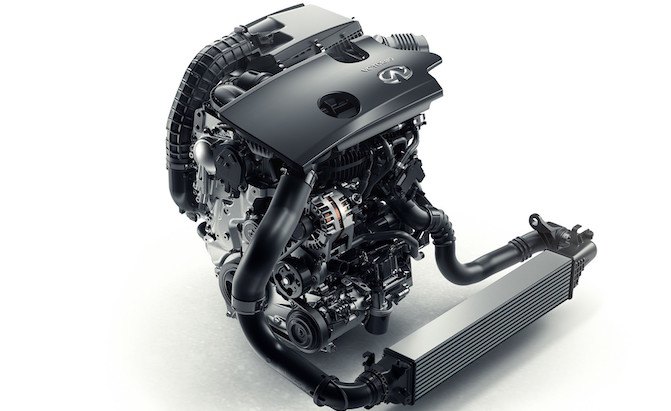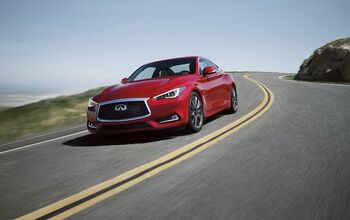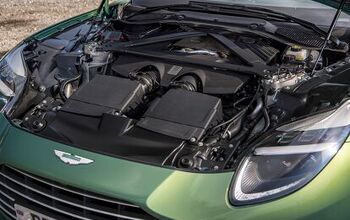Infiniti's New Turbo Four-Cylinder Engine Has a Trick Up Its Sleeve

Infiniti is showcasing the future of its engines today with the announcement of its new variable compression-turbocharged (VC-T) engine.
Infiniti will officially reveal the powerplant on September 29 at the 2016 Paris Motor Show. The Japanese brand says that this engine, which is the world’s first production-ready variable compression ratio engine, has been in the works for 20 years.
The four-cylinder engine is able to change its compression ratio from 8:1 for maximum performance up to 14:1 for high efficiency. To accommodate this, the pistons are able to change their stroke height seamlessly as the compression ratio changes.
SEE ALSO: 2016 Infiniti QX60 Review
Though Infiniti hasn’t offered up any specifications on the engine just yet, the brand says that this technology should reduce fuel consumption and emissions while retaining its performance.
“VC-T technology is a step change for Infiniti,” said Roland Krueger, president of Infiniti Motor Company. “It is a revolutionary next-step in optimizing the efficiency of the internal combustion engine. This technological breakthrough delivers the power of a high-performance 2.0-liter turbo gasoline engine with a high level of efficiency at the same time.”
The engine is expected to make it into a production vehicle by 2018. More information will be released on September 29. Check back to AutoGuide.com for live coverage from the 2016 Paris Motor Show.
Discuss this story at our Infiniti Forum

Stephen covers all of the day-to-day events of the industry as the News Editor at AutoGuide, along with being the AG truck expert. His truck knowledge comes from working long days on the woodlot with pickups and driving straight trucks professionally. When not at his desk, Steve can be found playing his bass or riding his snowmobile or Sea-Doo. Find Stephen on <A title="@Selmer07 on Twitter" href="http://www.twitter.com/selmer07">Twitter</A> and <A title="Stephen on Google+" href="http://plus.google.com/117833131531784822251?rel=author">Google+</A>
More by Stephen Elmer
































Comments
Join the conversation
I look forward to seeing more detailed info on how this works as well as what some real-world advantages are in terms of power and performance. Nissan could have a winner here. I'd probably opt out of the first year or two if this is a substantially different technology than what's available now. Let someone else work out the kinks.
Hmm, I wonder how close it could get to the 40% thermal efficiency of the Prius engine block, best case (max efficiency mode all the time). Intriguing, never heard of this way of improving efficiency. Atkinson, HCCI I thought were the main ways. Didn't know high compression hurt performance, otherwise why not keep it in 14:1 all the time unless pre ignition occurs.